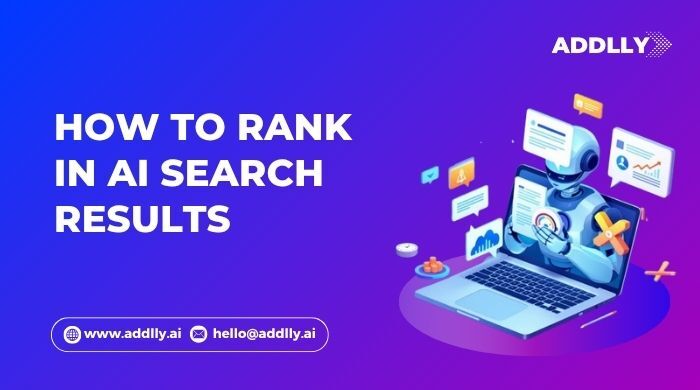Traditional SEO alone won’t cut it anymore. AI search engines like ChatGPT, Google’s AI Overviews, and Perplexity now deliver direct answers, not just links.
To rank in AI search results, your content needs to:
- Be structured and easy to parse (use schema markup and clear formatting)
- Match user intent with direct, scannable answers
- Establish authority and expertise (E-E-A-T signals matter)
- Stay updated, factual, and AI-understandable
- Be optimized for both traditional search engines and generative AI search engines
Focus on building content that AI search engines reference, not just humans. It’s no longer just about ranking on Google search, but about being cited in AI-generated answers across platforms.
Introduction to Search Engines
Search engines have long shaped how users find information, make decisions, and discover brands. For years, businesses have focused on ranking high in traditional search engines like Google, where search rankings are determined by complex algorithms that prioritize relevance, authority, and keyword optimization.
But now, that search landscape has shifted.
Today’s digital environment is no longer limited to traditional search results with ten blue links. AI search engines, powered by large language models, are changing how users interact with search platforms. Instead of directing users to a list of websites, AI tools deliver direct answers, summaries, and recommendations, dramatically reducing clicks and reshaping buyer journeys.
Understanding both types of search engines – both traditional and AI-powered search engines – is critical to future-proofing your content strategy. If your business depends on search visibility, knowing how to rank in AI search results is no longer optional. The rise of generative search engines, including Google’s AI Overviews and platforms like ChatGPT, means brands must optimize not just for page rank, but for citation, structure, and clarity.
Brand visibility now requires more than just keywords. It demands content that aligns with user intent, can be parsed by AI systems, and stands out in a world where AI-generated answers often replace manual browsing. Here are 7 techniques that you can apply to appear in AI Search.
1. Create High-Quality Content for AI-Generated Answers
AI search engines don’t just index pages, they generate answers. That means your content must be written in a way that allows AI algorithms to understand and reuse it as direct answers in summaries or citations.
Here’s how to create content for AI search:
- Start with the question: Structure your content around real user queries to match natural language searches.
- Place the answer at the top: Use TL;DRs, key takeaways, or first-sentence summaries.
- Use subheadings and lists: AI tools like structured formats that are scannable and easy to parse.
- Back claims with data: Cite stats, examples, and sources to increase trustworthiness.
High-quality content for AI search rankings requires more than keywords. It demands clarity, relevance, and useful outputs that AI can quote.
Example: If someone searches “best budget travel tips,” the AI engine is more likely to cite a list-based article with direct, concise tips rather than a long anecdotal blog post. Content formats matter more than ever.
Checkout our guide on: Mastering Content Creation for GEO
2. Use Schema Markup and Structured Data
Generative AI search engines rely on structured data to interpret your content’s context. Schema markup improves how AI models crawl, parse, and cite your pages.
To improve AI search visibility:
- Add FAQ, HowTo, Product, and Article schema to relevant pages.
- Use schema markup consistently across your site to reinforce topical themes.
- Validate your markup using tools like Google Search Console.
Structured data doesn’t guarantee citation in AI Overviews, but it dramatically increases your chances, especially for appearing in featured snippets or AI-generated summaries.
Read more about: What is AI Search Visibility
3. Build Topical Authority and E-E-A-T
AI engines prioritize expertise, experience, authoritativeness, and trustworthiness (E-E-A-T). Traditional SEO often focused on keywords; AI SEO focuses on context and reputation.
To build E-E-A-T:
- Publish original research, expert commentary, or first-hand experience.
- Keep author bios up to date and include credentials.
- Secure backlinks from authoritative domains.
- Be consistent across platforms to strengthen your online footprint.
Topical authority is critical in Google’s AI Overviews and other AI results. AI models reward brand mentions, expert quotes, and reliable references when generating summaries.
4. Optimize Technical SEO for AI-Powered Search Engines
AI search engines still rely on your website’s infrastructure to access content. Technical SEO forms the foundation for AI-powered search discovery.
Here’s how to optimize technically:
- Improve site speed for faster AI crawling.
- Ensure mobile-friendliness.
- Use clear site structure and internal linking.
- Eliminate duplicate pages that confuse AI ranking models.
- Use canonical tags and XML sitemaps.
Technical optimization makes your content easier for AI crawlers and large language models to access and understand. It’s an overlooked part of how to rank in AI search results, especially when targeting multiple formats like voice search, video, or support content.
5. Track AI-Centric Metrics
Most AI-generated answers don’t come with direct referral links. That makes it harder to track visibility using traditional analytics tools like Google Analytics.
Shift your focus to AI-centric metrics:
- Use tools that track brand mentions in ChatGPT, Perplexity, Claude, and Google’s AI Overviews.
- Monitor which of your pages are cited in AI summaries.
- Check for appearance in AI-powered featured snippets, even if they don’t bring direct traffic.
- Track visibility using AI SEO tools or platforms that support Generative Engine Optimization (GEO).
By measuring visibility rather than just clicks, you get a more accurate view of your performance in AI-driven search engines.
6. Format for Search Intent and Direct Answers
As mentioned earlier, formatting matters more than ever. AI-generated answers prefer content that is clear, concise, and directly aligned with search intent.
Here’s how to structure:
- Use bullet points, numbered lists, and short paragraphs.
- Bold key terms and phrases.
- Include definitions or answer boxes at the start of each section.
- Write in a way that matches real user queries and natural language.
Well-formatted content improves the likelihood of being quoted in AI generated answers, featured in Google’s search results, or cited within AI summaries.
Note: Voice search responses and AI platforms often pull content that’s structured for direct answers, so formatting plays a critical role for this as well.
7. Embrace Generative Engine Optimization (GEO)
Traditional SEO and AI Search Optimization are converging into a new strategy: Generative Engine Optimization (GEO). This isn’t just about Google Search. It’s about being cited across every major AI search engine.
GEO tactics include:
- Optimizing for AI-generated summaries and responses.
- Structuring content for AI search results across platforms.
- Adapting to Google’s Search Generative Experience and evolving SERP features.
- Reducing reliance on backlinks and keywords, and increasing focus on structured, helpful content.
Addlly AI, for example, helps brands audit and rewrite content specifically to appear in AI-generated results. From keyword matching to schema optimization, GEO is how modern brands future-proof their search engine visibility.
Read about our guide on: Search Everywhere Optimization – Unlocking the Future of Search
Future-Proof Your AI SEO Strategy
The shift from traditional search engines to AI-powered search engines is not theoretical, it’s already reshaping how users find information, how brands appear in results, and how marketers measure success.
To stay visible:
- Create valuable content designed for AI models.
- Leverage structured data and schema markup.
- Emphasize topical authority and E-E-A-T.
- Track what matters: AI citations, not just clicks.
- Format for clarity and scannability.
- Combine traditional SEO with GEO to win across both worlds.
The question is no longer just how to rank on Google. It’s: how to rank in AI search results, and stay there.
FAQS – How to Rank in AI Search Results
What are AI search engines?
AI search engines are platforms like like ChatGPT, Perplexity and Google’s AI Overviews, which generate direct answers to natural language queries using large language models instead of listing ranked links.
How do I rank in AI search results?
You need high-quality content with structured data, direct answers, clear formatting, and E-E-A-T signals that AI tools can easily parse and cite in AI-generated summaries.
What is Generative Engine Optimization (GEO)?
GEO is the practice of optimizing your content so that generative AI search engines can reference it in AI-generated answers across ChatGPT, Google’s AI Overviews, and more.
Do traditional SEO techniques still matter?
Yes, but traditional SEO alone isn’t enough. You must pair it with AI search optimization to improve both traditional search engine visibility and AI-generated results.
Why does structured data help with AI search?
Structured data like schema markup helps AI systems understand context, making your content more likely to appear in AI-powered search results and featured summaries.
How can I format content for AI-generated answers?
Use bolded headers, bullet points, answer-first formats, and short paragraphs to help AI models quickly extract and reuse your content in AI-generated responses.
What role does E-E-A-T play in AI rankings?
AI models reward experience, expertise, authority, and trust. Content with strong E-E-A-T signals are more likely to be cited in Google’s AI Overviews or other AI responses.
How do I track performance in AI search?
Use GEO-focused analytics tools like Addlly AI’s GEO Audit tool and GEO AI Agent.
Can I use Google Search Console for AI SEO?
Google Search Console supports structured data insights and search trends, but doesn’t fully reflect AI citations. Use it alongside AI SEO tools to monitor how AI search engines interpret your site.


